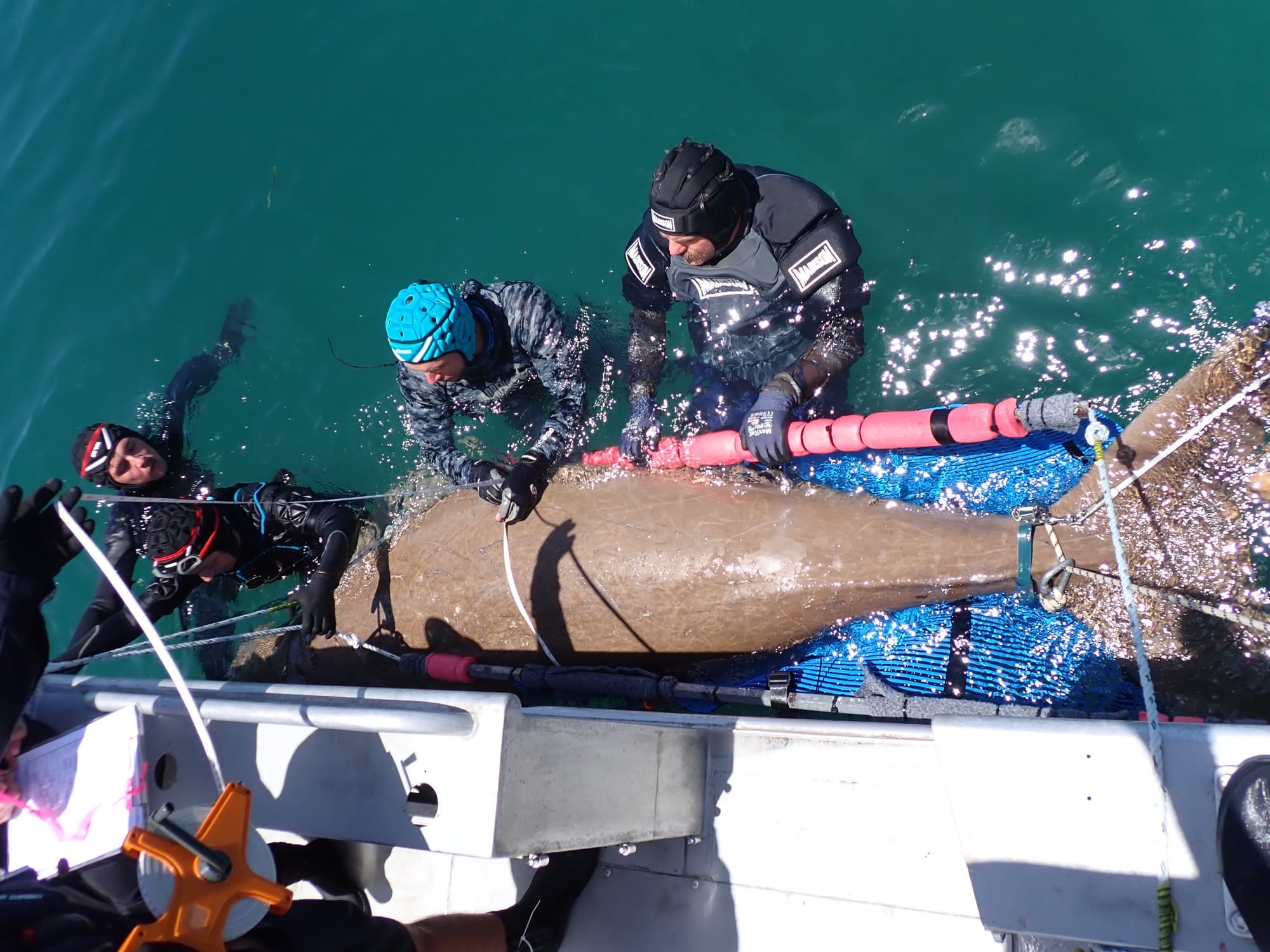Another successful dugong tagging trip at Shark Bay, Western Australia!
The Sequeira Lab team just returned from a very productive trip tagging dugongs at Shark Bay, Western Australia!

The Sequeira Lab team has just returned from a very successful dugong tagging trip in Shark Bay, Western Australia – the last of the field trips for 2024!
This expedition is part of the Gathaagudu Animal Tracking (GAT) Project. The GAT Project has been running since 2021 in Shark Bay or Gathaagudu (as it is known to the Traditional Owners of this land, the Malgana people). It seeks to track the movement and habitat associations of dugongs, sharks, and turtles with the vast seagrass meadows of the region. This is done mostly through the use of satellite trackers, high-resolution biologgers, and acoustic arrays.
This field trip was done in collaboration with the Malgana Peoples, the Traditional Owners of Gathaagudu, the Government of Western Australia’s Department of Biodiversity, Conservation and Attractions (DBCA), and with the help of Dr Christophe Cleguer from James Cook University.
The expedition started with an informal sharing session at the Old Pub at the Shark Bay Hotel. Open to all, the session attracted locals and international visitors, allowing the team the opportunity to share some of our results from previous expeditions. We were also able to showcase some of our field trip videos, including this one from the 2022 shark expedition, and this one from a previous 2021 turtle expedition.
At the start of the trip, we did an aerial recon trip to plan out the best areas to tag dugongs, and also ran a mock-up training session to practice dugong catching with the new team. After this great start, the team had a very successful tagging trip – with six tags safely deployed on adult dugongs! We wrapped up the tagging expedition with the GAT Project Sundowner (see here).
Our team would like to express our gratitude to the Malgana Peoples and the Malgana Aboriginal Corporation for their continued engagement and support of the GAT Project. We are also thankful to the team in DBCA Denham and to Dr Christophe Cleguer from James Cook University for all their help with work on the water.
Big thanks to our philanthropic funders, including the Jock Clough Marine Foundation, for making this project possible.
